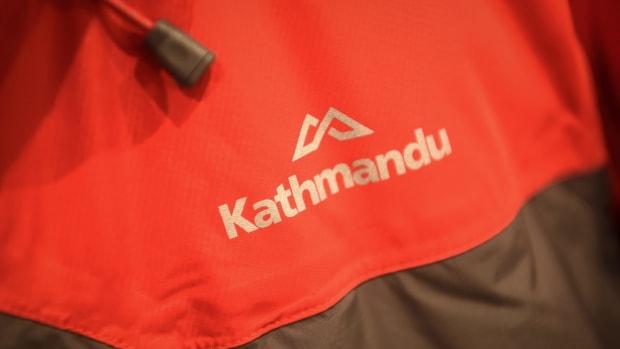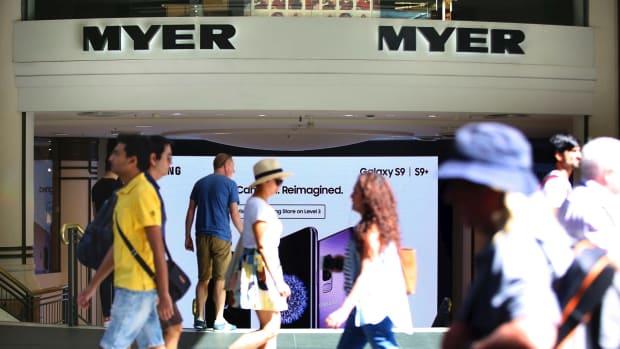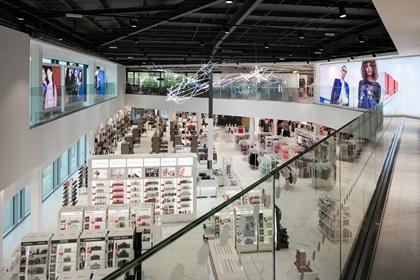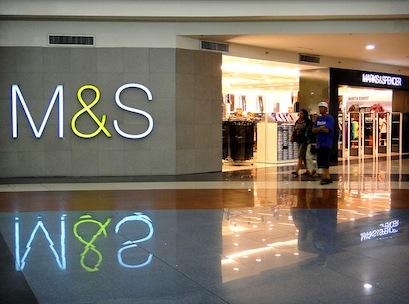L'Oreal Australia managing director Rodrigo Pizarro says the skin care market is booming. Christopher Pearce
All four of Pizarro's businesses – luxe cosmetics, which includes brands such as Lancome, Yves Saint Laurent and Ralph Lauren, consumer products (Garnier and Maybelline), active cosmetics (pharmacy brand La Roche Posay) and professional haircare (Kerastase and Redken) are in growth.
Pizarro took the helm in Australia four years ago and after 25 years in the industry – he started working at L'Oreal in Portugal as a 25-year-old marketing graduate – he never ceases to be amazed at its resilience.
"I've been in markets where there have been recessions and even in a recession the beauty market continues to grow," the 51-year-old father of four told The Australian Financial Review.
"I've been in countries where unemployment is high [and] you'd imagine women wouldn't have money to buy beauty products but on the other hand they have to go to work interviews or they just want to look good for their own self esteem," he said.
Australia a top five market
Australia is no exception. Despite our love for the outdoors and free and easy lifestyle Australian women spend more on skin care and make-up – particularly foundation – than those in other developed markets and a recent Euromonitor report ranked Australia in the top five markets in the world.
Skin care sales, for example, have been growing 7 or 8 per cent a year for several years, fuelled by 25 per cent to 30 per cent growth in active or dermo-cosmetics and natural brands.
"The skin care market is booming at the moment – all the products we have that are related to sensitive skin are in high demand," says Pizarro, citing La Roche-Posay, which is sold in pharmacies such as Priceline and Chemist Warehouse. "Sales have been doubling every two years."
Pizarro says new products and new players including Chemist Warehouse, Mecca Brands and Sephora, with their brand agnostic, hands-on, consumer-driven approach are helping to offset softer growth in traditional channels such as Myer and David Jones, which is opening Sephora shop-in-shops.
While beauty sales in department stores grew about 2 per cent last year, sales at Mecca Brands, which owns Mecca and Mecca Cosmetica, rose 29 per cent to $370 million (wholesale) and have almost doubled in two years, according to ASIC filings.
Sephora Australia's sales more than doubled to $149 million and Chemist Warehouse's beauty sales are said to be growing in high double digits.
"Some think the newcomers, the innovators, are just cannibalising the market – I don't believe it's true," Pizarro said. "I definitely think they've helped grow the overall market."
While the bulk of L'Oreal's business is in traditional retailers – department stores, supermarkets and pharmacies – the mix is changing fast.
L'Oreal sells Lancome and YSL products in both Sephora and Mecca, cult brand Urban Decay exclusively in Mecca and and It Cosmetics exclusively in Sephora.
'Everybody is looking for data'
Pizarro says that to retain its 16 per cent market leadership L'Oreal needs to understand how consumers are behaving and adapt quickly to those behaviours through new products, new marketing tactics and new routes to market. L'Oreal's wholesale sales rose 4.4 per cent in calendar 2017, according to ASIC records, exceeding 3.3 per cent market growth.
"Everything is happening so fast we need to be looking inside and outside to make sure if there's a new need or a new retailer proposing something new how do [we] address it," he said.
"One that's obvious is data – everybody is looking for data so we have the right brands in the right channel in the right retailer in the right mix."
L'Oreal is also moving quickly to embrace e-commerce. Online beauty sales are growing 25 per cent a year and now account for about 11 per cent of Australian beauty sales – less than half the online penetration in Asian markets such as China.
Pizarro believes e-commerce will account for 30 to 40 per cent of market growth over the next few years as bricks and mortar retailers improve their online catalogues and distribution to compete with pure-play retailers and as consumers become more comfortable buying online.
"If you take Sephora or Mecca or even the department stores, they're all overperforming online v offline," said Pizarro, who is aiming to lift L'Oreal's online sales to 20 per cent of total sales in five to 10 years.
L'Oreal Australia started selling Kiehl's, Giorgio Armani, Lancome and YSL direct to consumers through online sites earlier this year and is considering a multi-brand site, reflecting that consumers buy luxury and budget products across different brands, spending $79 for a YSL foundation stick, for example, and $9 for Garnier micellar water.
"I'm not sure it will be all our products but we might have some platform where we'll have multiple products from multiple brands and multiple categories from mass brands to more prestige brands," Pizarro said. "It makes sense from a consumer's point of view ... so it is really a possibility it will happen."
'Lots of interesting brands'
L'Oreal is also embracing augmented reality and artificial intelligence. Earlier this year it acquired Modiface, a start-up that develops augmented reality technology for beauty brands, including apps which help consumers virtually test make-up and hair styles and colours using their mobile phones, computers and digital mirrors.
L'Oreal has a history of growth through aquisitions – 32 of its 34 growing international brands were acquired – and more acquisitions are likely.
There has been recent speculation that L'Oreal might be interested in buying BWX, the owner of fast-growing natural skincare brand Sukin.
"We have systems in all countries including Australia to monitor all these emerging brands and start-ups and we have processes to understand where there is potential to approach them," Pizarro said.
"We have not made acquisitions in Australia but I'm pretty sure it will come – there are lots of interesting brands in Australia and Australians are very good at developing new brands, particularly in the skin care area."

















